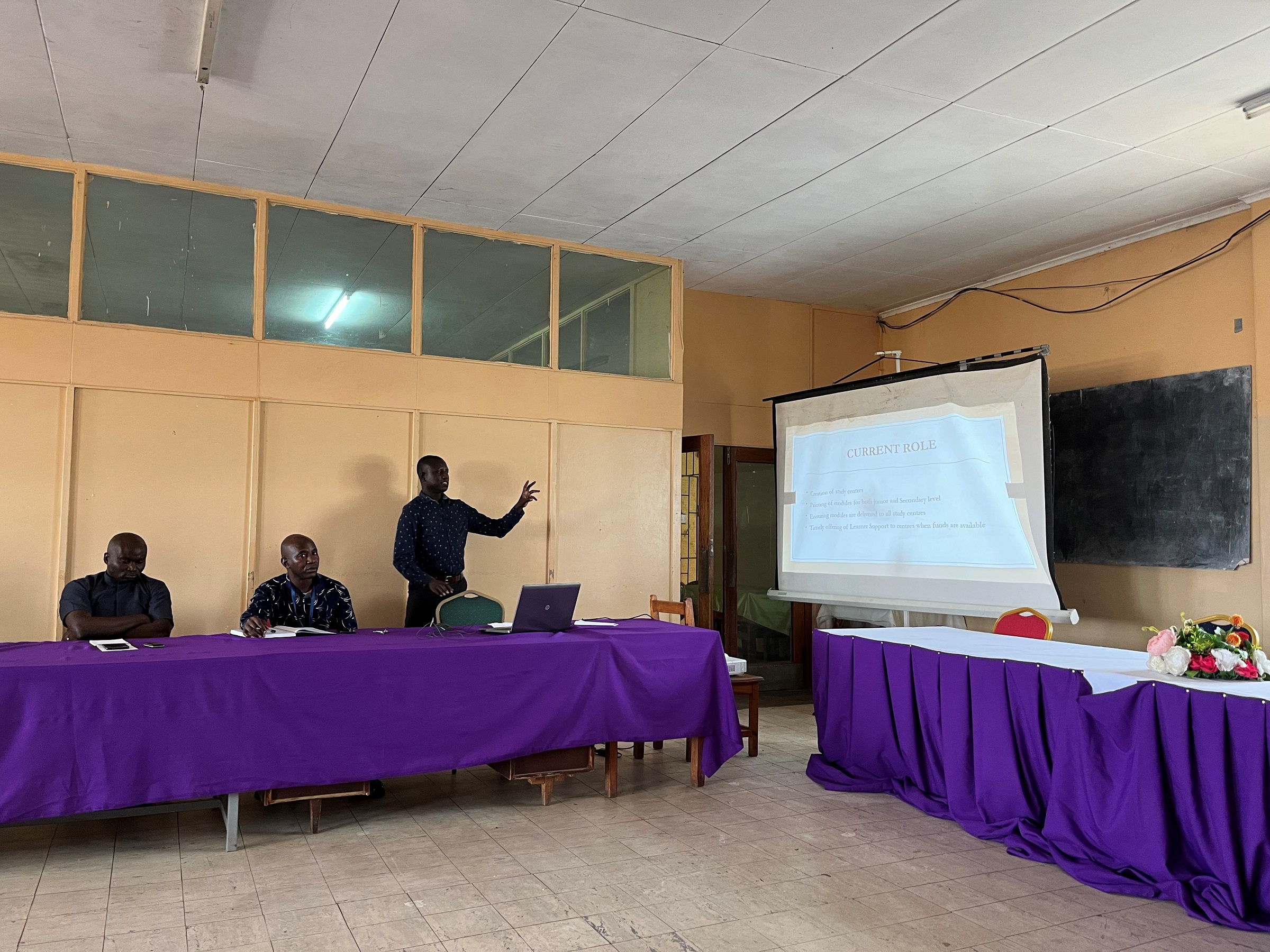
The Commonwealth of Learning (COL) has been supporting the Directorate of Distance Education at the Ministry of Education, Zambia with the development of curriculum-based digital OER and its deployment through AptusPi in 20 pilot centres in Zambia towards open schooling.
In November 2022, COL organised a series of meetings with Ministry officials to conclude the open schooling pilot, review the findings of a tracer study related to the pilot and to develop a plan for future collaboration.
The Permanent Secretary for Technical Services, at the Ministry of Education, Mr Joel Kamoko said he is looking to COL for continued support in relation to the Ministry’s curriculum reforms, especially regarding vocationalisation of the curriculum for out-of-school youths and greater use of educational technology.
Dr Tony Mays, COL’s Education Specialist for Open Schooling commented during the meetings,
“Digitising curriculum content as OER has many advantages. For example, the digital content can be shared in multiple ways – via direct download, via intermediary technology like flash drives, SD cards and/or AptusPi devices, pre-downloaded onto tablets or even printed where necessary. Once digitised, the content can be engaged with using screen magnifiers or screen readers by learners with visual impairment. Moreover, we can supplement text-based materials with audio and video materials, animations or simulations. In the online environment, we can add in synchronous and asynchronous discussion forums as well as interactive quizzes of various kinds.”
The pilot revealed that there is a great deal of interest in OER content among learners, especially in the central region of the country where access to devices and internet is higher. Engagement had also contributed to improving the digital skills of both learners and teachers. Online access to the digital content was also especially useful during the Covid-19 pandemic, with over 17,000 downloads of OER lessons in the first few months of the pandemic. By far the greatest use of the OER content is online and the Ministry of Education indicated this would continue.
Given the lower access to devices in the rural areas, the Ministry indicated it plans to undertake a comparative study of the costs involved in supplying tablets, rather than printed materials for which costs are steadily escalating. This is in line with the national vision to make greater use of information and communication technology (ICT). A more vocational curriculum for out-of-school youths is being explored as well as an interest in the potential of open textbooks.
ICT and vocational training can contribute to further opening schooling provisions by helping make the curriculum more relevant for unemployed and out-of-school youth. The use of open textbooks, in turn, also makes open schooling more accessible as books in this format can be downloaded and do not require the learner to be online on a continuous basis.


